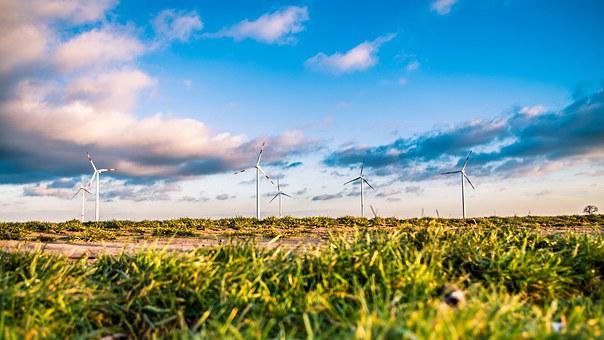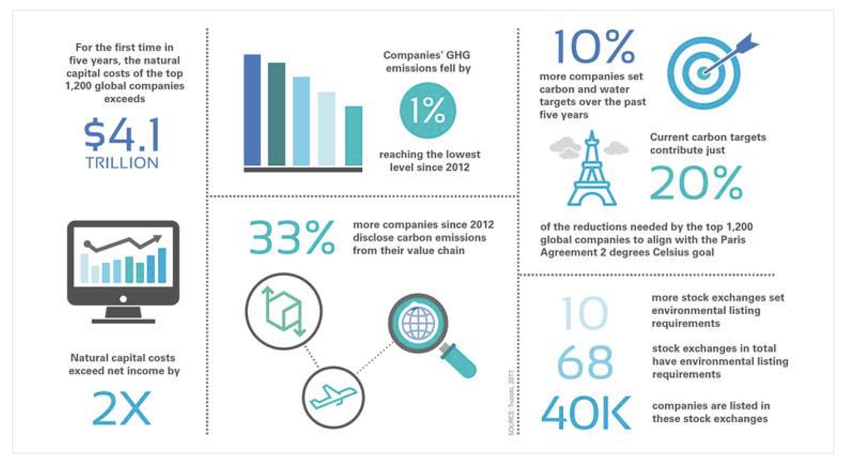4 Advantages of Starting a Green Business

In recent years, headlines about environmental concerns have made one thing clear: Protecting our world is a priority. For consumers, seeking an eco-friendly, or “green” business committed to a sustainable future is no longer an option, but an imperative.
In fact, 63% of American consumers said that they look for brands to take the lead on positively impacting the world. With these consumer trends, it’s no surprise when we see brands like Google and Dell announcing that they’re going green.
As for the future business landscape, integrating eco-friendly practices and green initiatives into your mission and values will become critical. A 2017 Cone Communications CSR study found that 87% of the consumers surveyed said they would purchase goods because it came from a company that advocated for an issue they care about. Nearly 90% said they would rather take a pay cut to work for a company that shared their mission and values.

Today’s consumers expect the brands they support to embrace corporate social responsibility (CSR), which impacts brand loyalty, profitability, and even employee recruitment. Whether you are in the public or private sector, here are four advantages that prove starting a green business is simply good business:
1. Profitability
Trends show that modern consumers care much about the social and environmental footprint they leave behind. For that reason, they’re willing to open their wallets to companies that share their values.
A 2015 Nielsen study found that 66% of global respondents said they would pay more for goods that are sustainable, an increase from 55% who agreed in 2014. The research indicated this was even more true of younger consumers: 73% of millennials said they would pay more for an item that’s sustainable and 72% of Generation Z, or respondents between the ages of 15 and 20, said they are willing to pay more if a brand commits to sustainable practices.
The bottom line: Feeling good about where you spend your money impacts buying behavior. Businesses that embrace and practice eco-friendly or green values are more attractive to consumers.
2. Funding
Companies with strong sustainable practices aren’t just attracting consumers—the lending sector is also taking notice. Smart investors track consumer trends and understand that buyers care about where their products and goods come from. They know eco-friendly businesses are a growing market, and that businesses can’t afford to ignore the social and environmental impact they have on surrounding communities.
In fact, according to Green Biz, in recent years, “mainstream investment firms have sharpened their focus on the environmental, social and governance, or ESG, performance of publicly traded companies. In some cases, investors, lenders, and ratings groups are starting to redefine ‘fiduciary responsibility’ to include such things as a company’s ESG data or vulnerability to climate risks.”
In other words, investors are starting to think long-term about sustainable investments, especially now that people check to see whether companies align with their environmental commitments.

Source: The Green Biz
3. Marketability
Sustainable companies will find that they have brand trust, which influences the purchasing decision of nearly two-thirds, or 62%, of consumers globally, according to Nielsen.
“This indicates an opportunity for consumer-goods’ brands that have already built a high level of trust with consumers to evaluate where best to introduce sustainable products into the market to drive growth,” said Carol Gstalder, senior vice president of Reputation & Public Relations Solutions at Nielsen.
Once you have consumers’ trust, they’re loyal, are willing to pay more for your products, and can provide the invaluable word-of-mouth recommendations. Proving to consumers that you care about environmental concerns also helps you remain relevant in the future business landscape.
4. Tax incentives
If you’re running a business that’s environmentally conscious, whether you’ve installed renewable energy sources or made improvements to old HVAC systems, you could qualify for tax-related benefits. That includes tax credits or tax deductions to reduce your business taxes.
For example, you could get tax incentives for turning your business into a “green” building. Take a look at what’s available in your state, discuss your eligibility and qualifications with your tax preparer, and file the application Form 3468 along with your business tax return.
From Google’s commitment to reducing their carbon footprint to LEGO installing 40,000 solar panels in its Denmark factories, offices, and stores, there’s a reason why you’re seeing more companies seek innovative ways to integrate green practices in their business functions.
However, while the reasons above are enough to consider starting a green business, maybe the most important reason of all is that you are helping to save the planet. When you think about the troubling signs impacting our planet today, like the rising of global temperatures, coastal flooding, and heat-related deaths, doing your part can make a real difference. It’s true that you’re not going to do it on your own, but once you start, you may find a community that supports your initiatives, including other businesses, lenders, and consumers. Finding that niche might be all you need to do something positive while making a profit.
ABOUT THE AUTHOR

Eric Goldschein is an editor and writer at Fundera, where small business owners can find expert insights and tailored financial options such as business loans or business credit cards. Eric writes extensively on entrepreneurship, marketing, and small business trends.
